Substack Post March 27, 2025
Every time someone in my family brings home a new dog, my brother Billy says, “It’s a tragedy waiting to happen.” He calls himself twenty-one dogs old and when he loses a dog he doesn’t wait long before he adopts a new dog even though he knows he will most likely outlive his new love and experience another heartbreak.
When my dog Bear was dying, I talked to him as I watched his spirit, receding rings of energy, retreat daily, his gaze now focused inward to letting go of life here on earth. Those last few weeks I also talked to that greater part of him through an animal communicator, a slight woman with a blond bob and former opera singer who lived in New York. Through her I’d connected with many of my old dogs, reliving their transitions to the other side, as each had been different with hard choices and much regret still associated with their passing. Now here we were again: at the end of a dog’s life which spanned so many different chapters of my own.
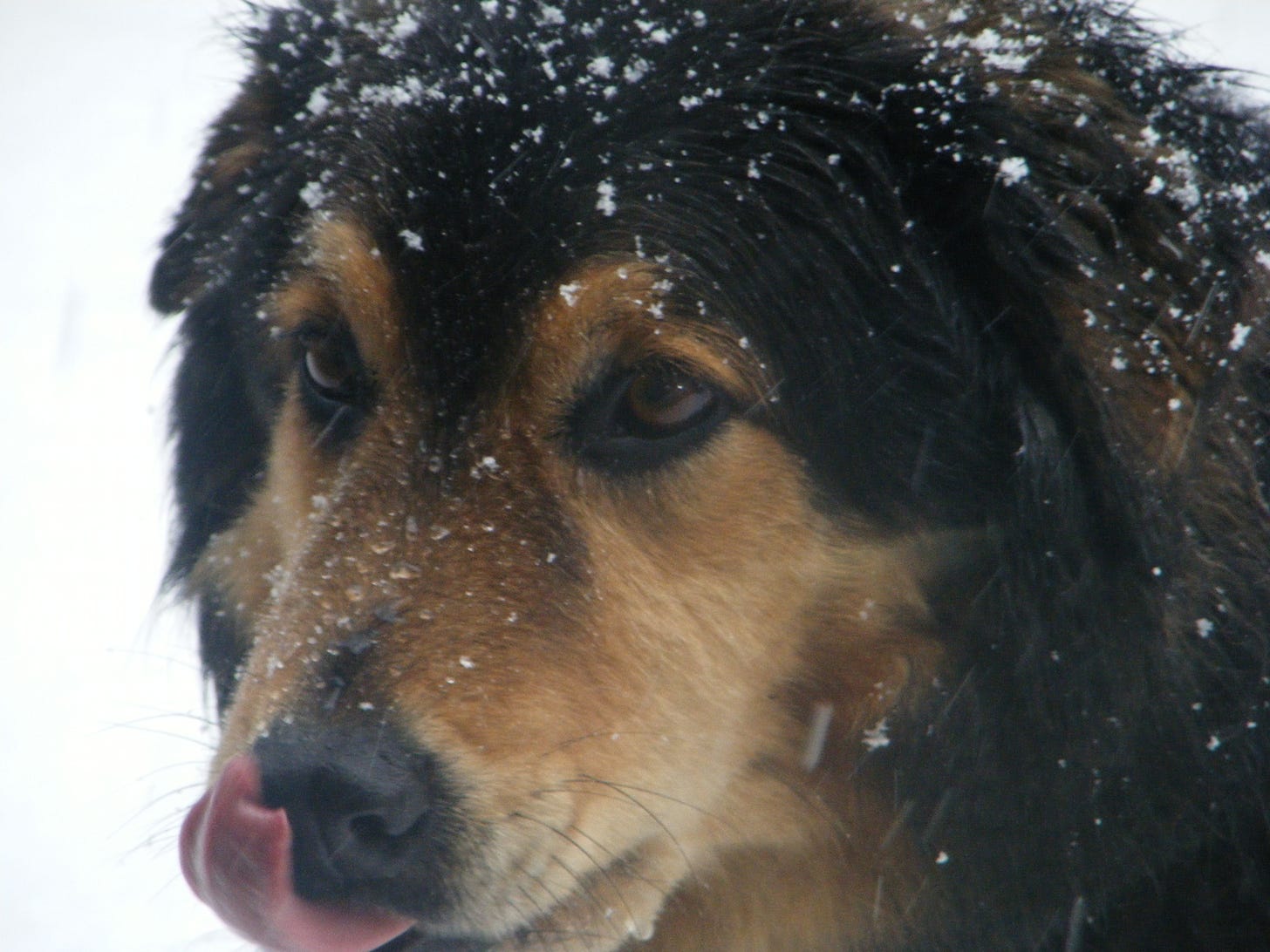
Every morning at 5:30 for fourteen years, Bear pattered into the bedroom, pacing, his claws dancing on the hardwood floors. It was time to get up. Bear supervising, my husband Hugo made coffee, and walked, as he used to do so long ago with our dog Samson, to grab the newspaper at the end of the long driveway. At night, Bear patrolled the perimeter of the yard before bed. If Hugo went out of town, Bear positioned himself in front of the bedroom doorway to sleep. He was our sentinel.
During the weeks before his obvious decline, I felt a shift, something unseen and subtle like the barometric pressure changing. After Bear’s fading became undeniable, his discomfort and pain came in stages. By the time I called Rae, he wasn’t eating and no longer came into our bedroom.
That day I closed the glass doors to my office, sat on my meditation pillow covered with a parade of elephants, and leaned my back against the tongue and groove wall, Bear asleep on the kitchen floor. After giving Rae only a few details, I put the phone on silent while she meditated and then wrote the thoughts and images that come to her automatically. When she returned, she read from her notes.
Bear had showed Rae an image of a worn-out car with the ignition not turning. “He says he’s just all used up,” she said. He also showed her his spirit being in and out of his body. “When it gets hard, I can hover around,” he said.
I told Bear how much we loved him. Yes, I know you don’t need an animal communicator to say this to your dog, but he responded, “Oh my, such a history together. At my peak I was unbeatable. It’s hard to let go.” He said he couldn’t manifest now or again in this body, and he thanked me for he’d lived the life wanted to.
To many readers, this type of exchange may seem potentially scripted, but the real reason I wanted to touch base with Rae was to know when to help Bear let go. I didn’t want him to suffer, yet how does any dog owner know the right moment to assist a beloved pet’s transition and under what conditions is best?

The first time Hugo and I had to make this heartbreaking decision with Samson almost twenty years ago, we prolonged the decision out of fear and paralyzing grief. We’d finally taken him to the vet in a reactive daze one afternoon when Hugo came home from work and abruptly announced it was time. We’d scared Samson with our zombielike despair, and at the doctor’s office, anxious and afraid, he peed on the cold tile floor. The sterile room and the tense atmosphere was the kind of harsh goodbye I never wanted our dogs or us to experience again.

Other times a dog’s body had shut down and made the decision for us. The most traumatic deaths have been when Fritz was hit by a car and Dakota had a heart attack. We had no time to prepare for the shattering emptiness. Only once has a dog simply passed away quietly at home. Even as I wept kneeling by Sophie’s beautiful, majestic body, I knew the way she’d left us was a blessing. With each dog, Hugo and I have learned to understand the dying process better and our role during it. Each time we’ve had to wrestle with the guilt, what ifs, and why now. With each dog, I say I will never get another dog.
When Rae asked Bear that day what he needed, he said, “I can do this myself if I have the strength to boost myself to jump out.” He reminded me, “It’s my body suffering, not my soul.” Rae said Bear understood he was dying and that I didn’t want to make the decision when for him, but he’d given me permission to decide when to call Dr. Standifer. The vet coming to the house would be his last gift he said.
The last few days Bear sometimes stood on the deck, looked up at the sky and trees and sniffed as if in appreciation of his surroundings. As if to confirm this, he said, “This is a hard process. I still love everything on this plane. Moving, being around family, water, my feet on the ground, walking. I’m saying goodbye to each part of life here. There’s nothing like being on earth.”
After a couple of days had passed without food or elimination and Bear couldn’t stand up, we knew it was time. When Dr. Standifer walked into the kitchen, sweet Dakota, who never growled at anyone, started growling. Dr. Standifer knelt and petted Bear. Hugo, Clint, Frances and I placed our hands on Bear’s body, stacked like a cairn, a marker we were in new territory, while he gave Bear the shot.
In the past Hugo has always buried our dogs, slamming the shovel into the hard, unforgiving dirt no matter the time or weather. He dug and dug and dug as if the violent wrenching of his movements could make it all go away. Losing our last two dogs had been so hard, we now chose cremation. After our last moments with Bear, Dr. Standifer carried his warm body wrapped in a towel and placed him gently in the back of his small car to be cremated. And just like that we were supposed to walk back into the wall of memories and reminders of where Bear once used to be.
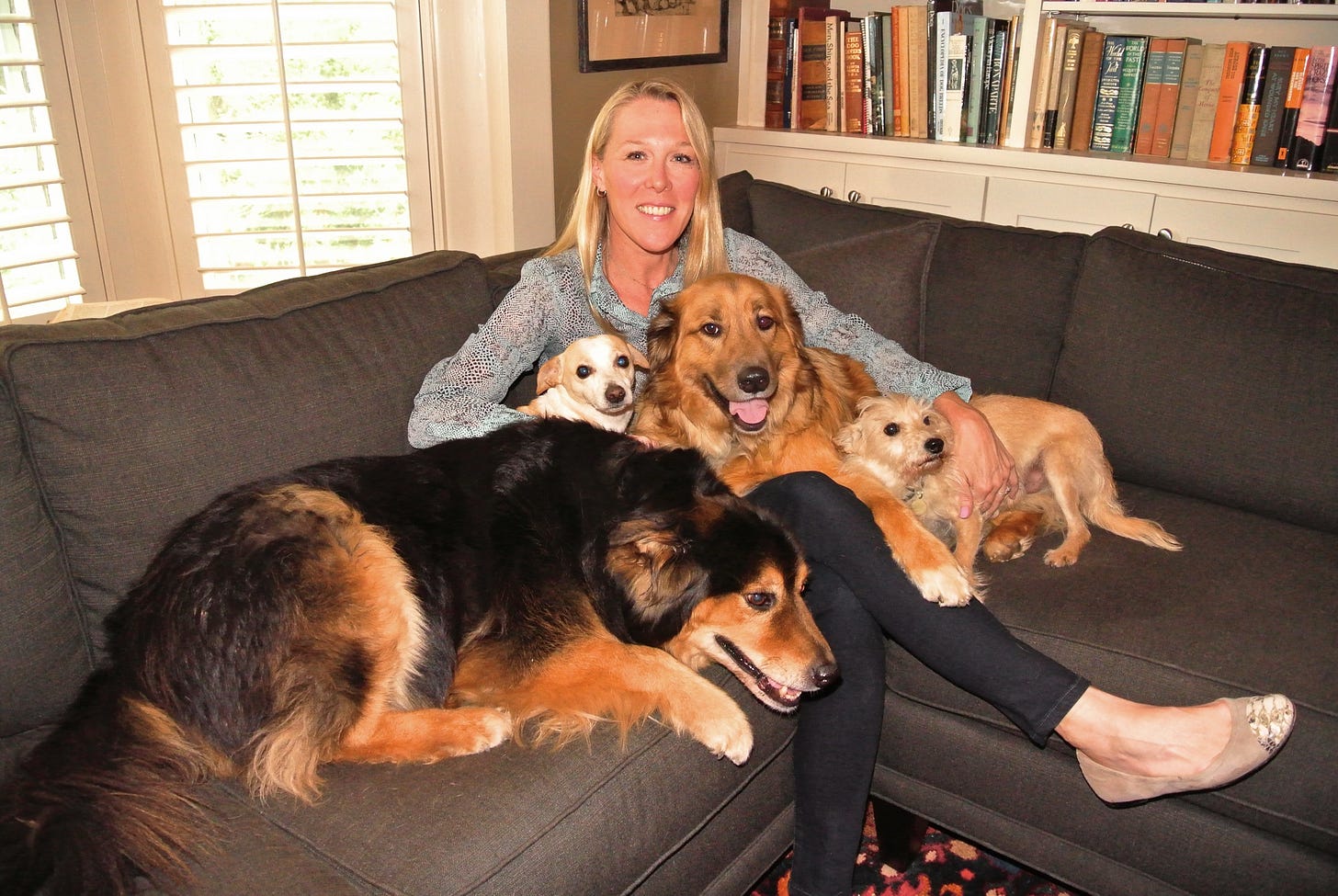
I contacted Rae a week or so later when I knew I could talk without crying uncontrollably. Rae commented Bear immediately came across as a young adult pacing around, covered in snow, of all things, which he’d loved so much. “I have been waiting for this moment. My transition is complete. I’m feeling the way I did at 2–3 years old. On your plane, I had long forgotten what this is like. I was reborn.”
“I just slipped out like a sigh,” he continued. “I felt your cushion of love and it went across with me.”
To hear these words felt like a soothing mantra I could carry with me in his absence, though this connection couldn’t resurrect his physical presence I ached for.
After Bear died and then we lost Dakota unexpectedly from a heart condition we didn’t know existed, I had no intentions of getting a new dog. We still had our terrier mix Sparky. But heartbroken, Frances found a Rottweiler puppy named Hope on a breeder’s website on the internet. We’d always made a point to find rescue dogs and I was wary of the breed, but as only teenage girls can do, she persuaded Hugo to get this dog.
When Hugo brought Hope home (we renamed her Spice because she bounces like Tigger and spices up our lives), I couldn’t help but look at this vibrant puppy and think if I’m fifties and she lives a full life, another decade of my life will have passed. I couldn’t help but think, now, in this moment, is our beginning, but one day I will lose you. I will bear the pain of this beginning ending far sooner than I ever could imagine. Holding her close, I felt her beating puppy heart, the syncopated rhythm of our joyous beginning intertwined with the future’s inevitable sorrow.
A great episode on animal communication on The Telepathy Tapes.

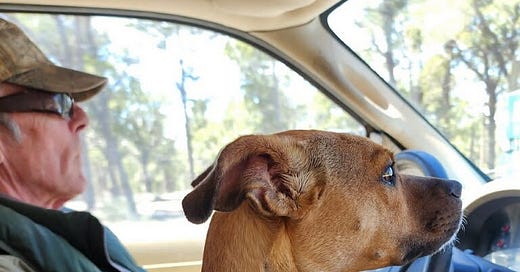



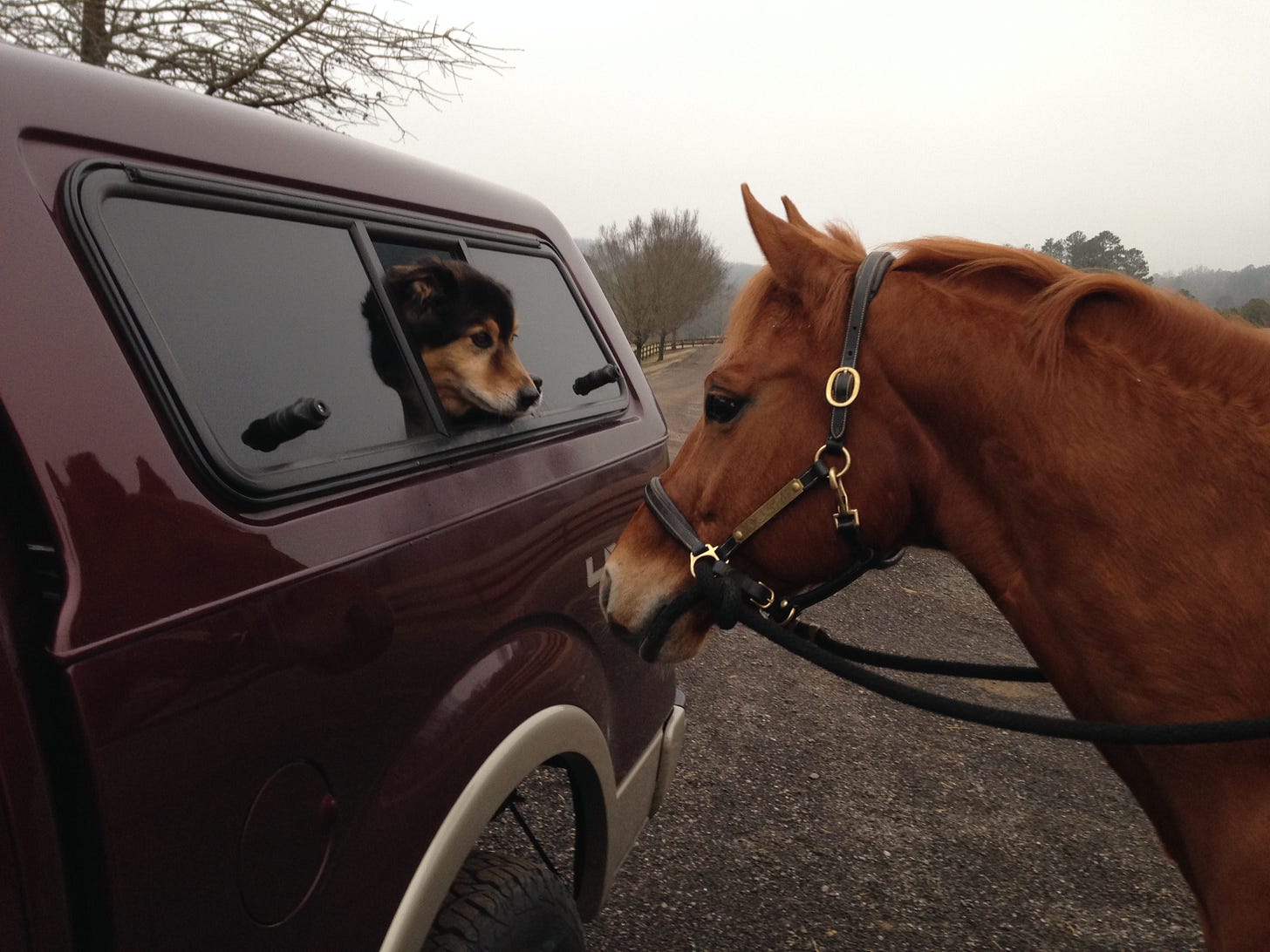
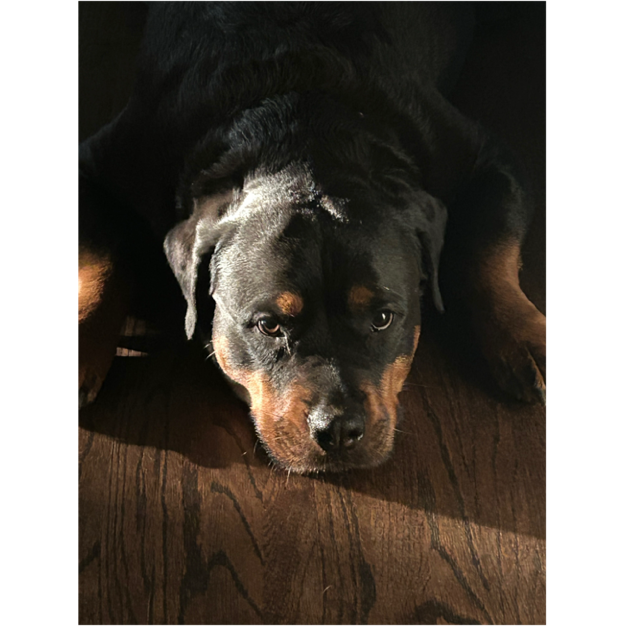
Loved this so much. Thank you for sharing.
A most beautiful story about dogs and their people. xoxox